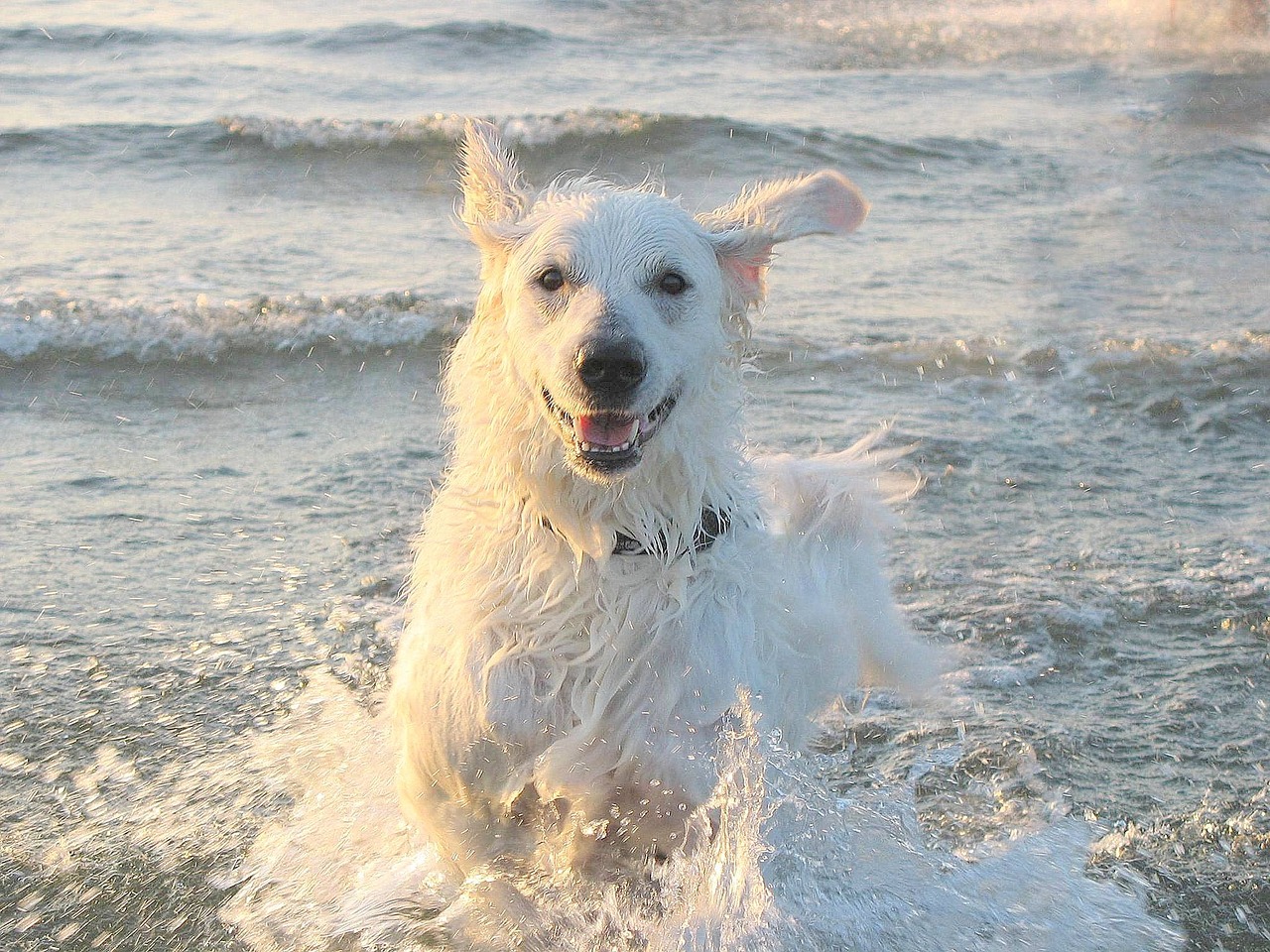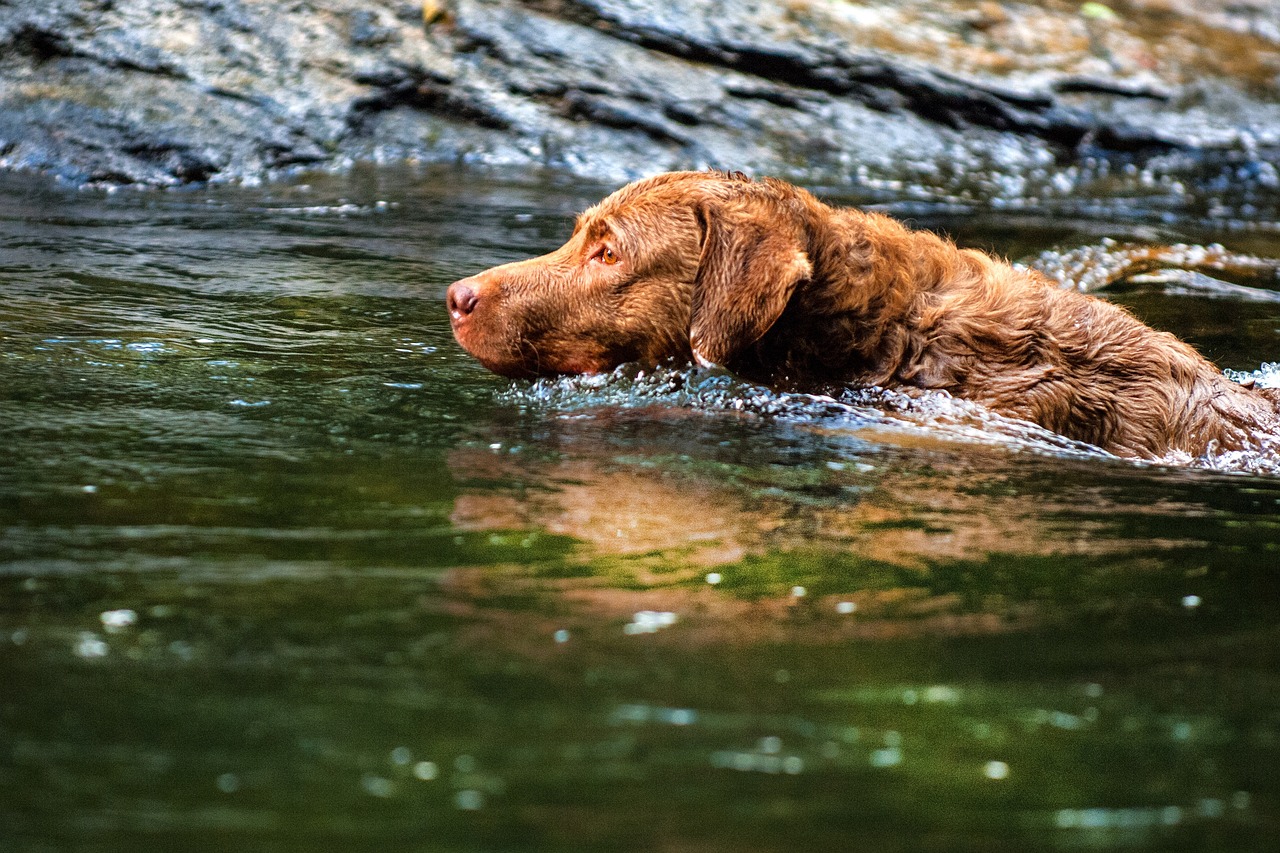
Does your dog smell bad swimming? There are dogs that exhibit a musty or sour smell after being wet. It’s similar to the smell that comes from laundry which was not dry completely after being washed. It is possible that the smell diminishes after the dog is dry, but it quickly comes back after getting wet again. The smell may be worse for dogs with thick coats.
Why Do Some Dogs smell musty after swimming?
A dog’s coat is very beneficial in water, particularly in the case of retrievers or other dogs that are sporting. Their oily, thick coats repel water and allow drying faster and shielding their skin from cold, hard water.
However, the coat of your dog can also absorb and trap diverse organic matter in the water. Based on the source of water the coat of your dog could be able to absorb algae, bacteria, or animal or fish waste from dirt, plant material, and other materials. This debris could stay within the coat when the dog drys and leaves behind a foul smell. Additionally, the presence of skin problems can make the smell more pronounced.

How to reduce or eliminate the dog’s odor
There are a few steps you can follow after your dog has finished swimming to reduce the smell on your coat.
- Make use of a hose fitted with the shower-like nozzle to wash your pet out once you have finished swimming throughout the day. The stream of water that is clean will help to eliminate some of the odor-causing materials within the coat.
- If your dog likes to swim, you should keep your coat trim or shave it short.
- Use a deodorizing spray for pets to disguise the smell until you are able to give your pet a bath.
- Wash your dog every swimming session. Although it isn’t easy, it can assist in getting rid of anything in the water that contributes to the smell, which includes chlorine. Talk about the best choice with your vet. If your dog suffers from skin allergies or allergies then a medicated shampoo might be suggested.
- Make sure your dog is completely dry after bathing or swimming. Do not wait to let your dog dry out in the air. If the coat is wet for long bacteria and fungus may flourish and reproduce and make the coat smell worse, possibly leading to skin infections.
Dog Odor and skin infections

Skin conditions are common among the majority of dogs. While most infections are caused by skin allergies or other issues but they could get worse due to frequent swimming, particularly when the coat isn’t able for drying completely. If dogs shake when they get wet, they’re in a position to eliminate a large amount of water from their coats. But, this isn’t enough in dogs that have thick coats or coats that repel water. Dogs with folds on their skin could get infections in the folds where air can’t get to the skin and dry it.
The smell of skin infections is typically more intense than the typical “wet pet” smell. It can be unpleasant and sour. A stink that is sour could be the initial indication of a skin condition. Have a look at the fur to see whether you see any sores or bumps boils, or rashes that may appear anyplace. The skin may appear rough, red, or excessively greasy. There may be a waxy or greasy layer on your skin. A variety of skin conditions can cause dogs to become itchy.
If you suspect that your dog may have an infection on the skin consult your veterinarian to seek advice. In certain instances, the dog may require medical treatment that includes an antibiotic or antifungal. Your veterinarian may also suggest applying a treatment topically and/or bathing your dog in shampoo that is medicated.
If your vet doesn’t think the problem is worthy of treatment, you might have the option of using an over-the-counter remedy to soothe your pet’s skin. Bathing your dog with a commercial shampoo can help in the treatment of skin irritation and itching. A shampoo based on oatmeal is a good option. Discuss with your vet prior to applying any products that are natural to your pet.